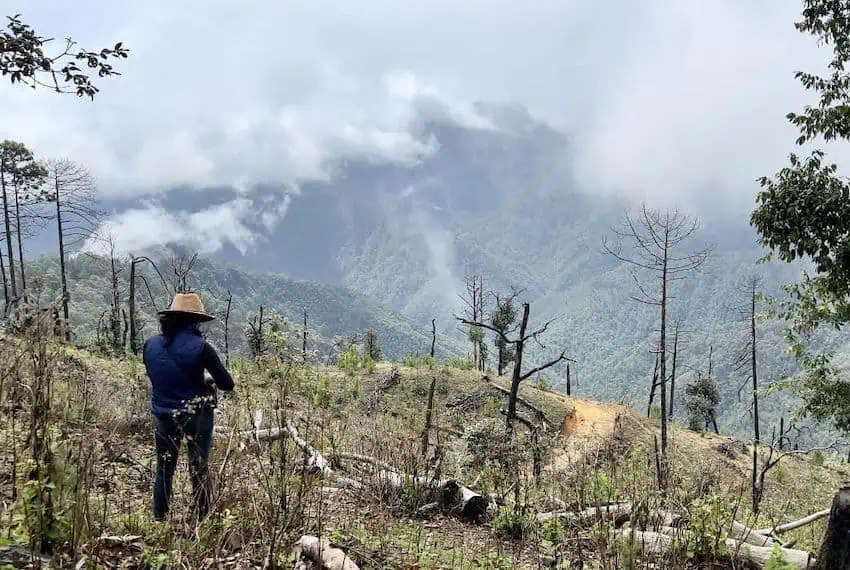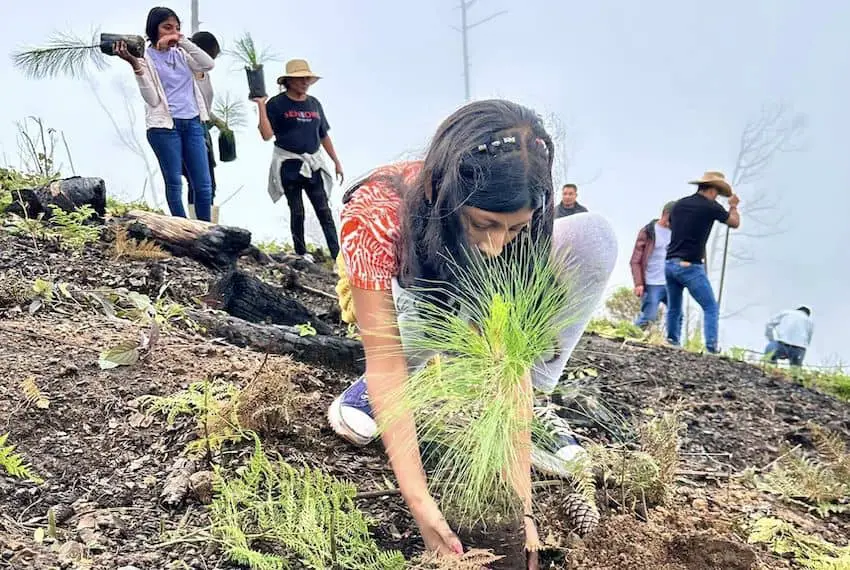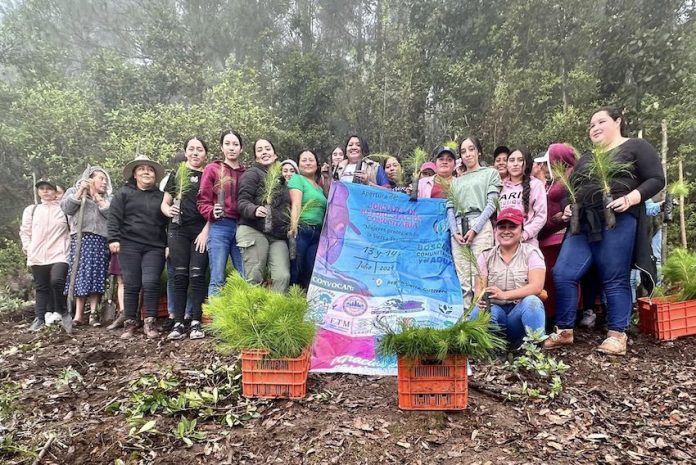Over the weekend, a massive reforestation project led by 500 women from 10 rural communities kicked off in the Sierra Tecuani Biosphere Reserve in northern Guerrero.
The campaign “Women Protecting the Sierra Tecuani” began with the planting of thousands of pine trees on lands damaged by recent wildfires and former poppy farms that once supplied heroin producers.

Restoring land degraded by organized crime
Calling for the planting of 30,000 trees over 30 hectares by week’s end, the initiative aims to combat climate change, restore damaged ecosystems and rejuvenate aquifers in an area ravaged by both criminal activities and environmental degradation.
Two organizations spearheaded the project: the Sierra Region Women’s Collective and the Union of General Hermenegildo Galeana Forest Ejidos, with support in the form of a $30,000 donation from the Mesoamerican Territorial Fund (FTM). The effort also benefits from collaboration with the Mexican Network of Peasant Forest Organizations (MOCAF).
The hundreds of women and handful of men who participated were mainly from 10 ejidos — federally owned communal lands typically used by their residents for agriculture or forestry — in Guerrero’s Sierra Tecuani, a region north of Acapulco.
Known for its rich biodiversity, the region was declared one of 20 new Natural Protected Areas (ANP) by Mexico’s Environment Ministry (Semarnat) earlier this year.
Communities come together to plant thousands of trees
The activities in communities such as El Balcón, Fresnos de Puerto Rico and Cordón Grande began despite rain and foggy weather. Some ejidos requested support from the Mexican army.
Participants planted as many as 3,000 pine trees over two days in several areas, such as the former poppy fields of El Balcón.

“In this area, they used to plant poppies, which was necessary for the farmers to survive,” said Emiterio Gamas Quirino of the Chamber of the Forestry Industry. Poppies helped sustain the economy of the Sierra people for more than four decades until prices fell.
The project also aims to benefit communities that are striving to heal and rebuild after many families fled to the United States due to threats and violence.
It will also help areas affected by fires, such as Filo Mayor, which in May “lost 10 hectares of good trees that we protected for many years,” said one resident.
“We are young women and women who have children,” another participant said. “We are doing this so that in the future our children will not have to battle with water [and] climate change. We would like to leave a good future for our children.”
Some of the women involved emphasized the importance of overcoming historical gender barriers and promoting communal work.
The project also aims to improve local infrastructure and access to services, which have been lacking in these remote areas.
“We hope that things will soon get better, that they will fix our roads, send us doctors and our children will study,” said one participant.
The effort is especially crucial in the Sierra Tecuani Biosphere Reserve, where it will help protect local flora and fauna, including endangered species like jaguars.
With reports from El Sur Acapulco, La Jornada and Quadratín Guerrero
